 No sense of humor? You just answered the question in the title..
No sense of humor? You just answered the question in the title..
What does it mean about you what you know and what you don’t know? or how much you know…
It means nothing about you. And yet we all pretend to know stuff… stuff we don’t know. Stuff we can’t know.
It is, to me, the most counter intuitive behavior, but I must be a freak, because I would never pretend to know something I don’t know.
There must be a mistaken belief that if you know something you are better. Smarter.
This is one of the detrimental results of living on the Tree of Knowledge, where you don’t enjoy life, where you don’t experience fulfillment, love, happiness, because it is impossible to experience on the Tree of Knowledge.
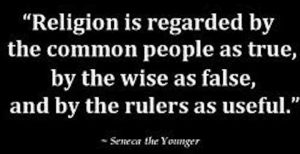 When I try to reconstruct the likely story what happened, I ultimately think that what happened is that a small group of people said to the rest of the people that a deity said that they are special and must be served by the rest of the. That their work is to connect to the gods, while the rest attends to getting food, and such.
When I try to reconstruct the likely story what happened, I ultimately think that what happened is that a small group of people said to the rest of the people that a deity said that they are special and must be served by the rest of the. That their work is to connect to the gods, while the rest attends to getting food, and such.
Obviously I am looking from the limited perspective of the human mind… but that is a likely story. Not the truth of what happened, because that, that I don’t know. But I know that it sound like the story that separated those who were in the know and those who weren’t.
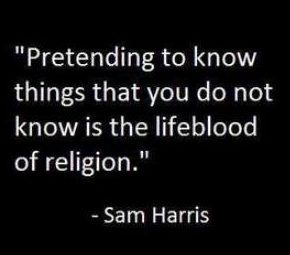 But it was made up. There are no gods. And no one is in the know. Or even if anyone knows anything, that doesn’t actually increase their chances for a good life… only for a life of wretchedness over other wretched people.
But it was made up. There are no gods. And no one is in the know. Or even if anyone knows anything, that doesn’t actually increase their chances for a good life… only for a life of wretchedness over other wretched people.
Why am I saying that?
Because the good life is NEVER over another person’s misery.
Why not, you ask? Because seemingly lots of people live off from other people’s admiration, and its monetary expression.
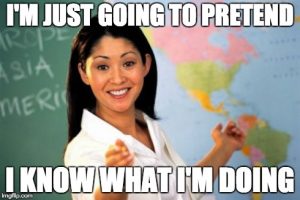 But when you have a chance to observe those seemingly rich people: they are wretched. Not more and not less wretched than you are, if you hope to get above through climbing over other people.
But when you have a chance to observe those seemingly rich people: they are wretched. Not more and not less wretched than you are, if you hope to get above through climbing over other people.
When you try to pretend that you know something that you don’t, or try to fight about stuff that neither you nor your opponent knows, you are one of those wretched people who want to climb over other people.
There is wretchedness and competition and scarcity on the Tree of Knowledge. There is agenda, pretense, and wickedness.
On the Tree of Life there is no competition where it is “who is higher”. Or who is right and who is wrong.
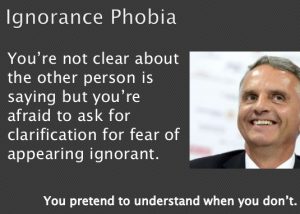 There is no whoredom of presidents, and there is no rabid followers hoping that the president’s actions make them bigger, and win over others. I am talking actual people, actual presidents here.
There is no whoredom of presidents, and there is no rabid followers hoping that the president’s actions make them bigger, and win over others. I am talking actual people, actual presidents here.
If your value is defined outside of you, then you don’t have a self, you are not a person. You are a tool.
There is nothing wrong with being a tool, except that you are used, like a tool. For the wretched purposes of another wretched tool.
 There are only tools on the Tree of Knowledge.
There are only tools on the Tree of Knowledge.
Mother tools, father tools, child tools, president tools, revolutionary tools, worker tools, all tools.
 Christian tools, Mohammedan tools, Buddhist tools.
Christian tools, Mohammedan tools, Buddhist tools.
No persons. Only tools.
And you are, probably stuck in one or more of those roles, dreaming about freedom, about self, about beingness. Dreaming about being of service.
But any role and any “service” you dream up on the Tree of Knowledge is wretched.
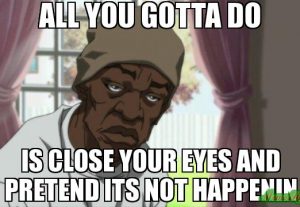 Because on the Tree of Knowledge it is all about your vanity, it is all about your ego.
Because on the Tree of Knowledge it is all about your vanity, it is all about your ego.
And all ego wants is to be bigger, better, than the other.
But without Self, without feeling that core even if you can’t put words on it, you don’t have an experience of being alive, of being a person, that you matter, that your life matters.
Because there is no YOU. Only Ego. The toxic fruit of the Tree of Knowledge.
PS: as I am looking at this article with your eyes, I see what is missing. The perspective of the Tree of Life.
What matters on the Tree of Life? Am I right about that?
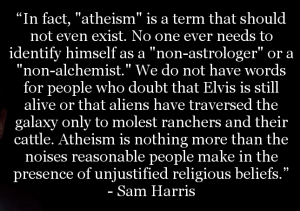 Well, let me let you in on the secret of the Tree of Life.The Tree of Life is all about what you see, what you can see at any one moment.
Well, let me let you in on the secret of the Tree of Life.The Tree of Life is all about what you see, what you can see at any one moment.
Because Life is unpredictable, it’s chaotic, and its inherent order within only leaves traces, but is not really in your experience.
So the good life is not predictable either, but it can be experienced when you can be guided by your perception, by your ability to see and correctly see the world, your world.
The knowledge the Tree of Knowledge values so much is actually an impediment here… it prevents you from looking and seeing accurately. Like a blinder, or like an eye patch… maybe even a blindfold.
You have the equipment, and you can learn to use it.
The first step is to dislodge yourself from the importance of knowing.
Knowing is not only the booby prize, but the toxin that poisons your life.
 Whenever you think you know, cast it aside. The more you do it the better you can get at it.
Whenever you think you know, cast it aside. The more you do it the better you can get at it.
Also, hear “knowing” in what you read, and what you hear. Whether it comes from a so-called expert, or an innocent.
Their knowing needs to be heard but needs to be cast aside as well.
What matters is what gets stirred in you. When you are willing to hear what another has to say, new synapses, new connections get activated in your brain.
 Reading is for this. Not for the knowledge but for the insights of the other to create, help create new synapses in your brain.
Reading is for this. Not for the knowledge but for the insights of the other to create, help create new synapses in your brain.
So you don’t have to experience directly everything. So your experiential life can be doubled, tripled, quadrupled by what you read… if you read it correctly.
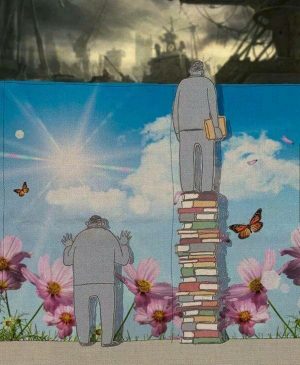 If you read to activate your brain. Make it a more reliable, richer network of synapses… so when you see life, what you see is more accurate, more precise, so you can have a bigger, better life.
If you read to activate your brain. Make it a more reliable, richer network of synapses… so when you see life, what you see is more accurate, more precise, so you can have a bigger, better life.
You need to snap out of the habitual role you play in life: the arrogant father, the possessive mother, the obedient child, the abusive child, the frightened child, the “good” child.
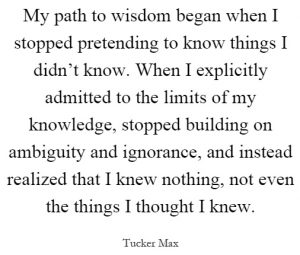 Being in any role, you cannot allow what you read create synapses in your brain, you will treat what you read according to your role, and it will become useless.
Being in any role, you cannot allow what you read create synapses in your brain, you will treat what you read according to your role, and it will become useless.
Find what role you play habitually, and start moving into other roles.
The more you can play any role and all the roles, the better you get at building a brain you can trust. You see, perception all lands in the brain, and the brain’s ability to interpret it correctly is what is considered smart, what makes you and your life brilliant.
But roles limit what can go through to the brain… they are like filters. And the brain, having only a fragment of the impressions, cannot do an accurate interpretation: it has those missing pieces, often 90% of what is there.
This is the work, simplistically.
A little more complex way to say what I just said: you need to eliminate all the ego moves to the degree you can in one lifetime.
What these moves are is pretty much consistent with your soul-correction. What is your soul-correction?
 PPS: The reason it is near impossible to find a teacher, a guru, a healer who is authentic and present because those are roles, very rewarding to vanity, very rewarding to ego.
PPS: The reason it is near impossible to find a teacher, a guru, a healer who is authentic and present because those are roles, very rewarding to vanity, very rewarding to ego.
I am battling daily, hourly, minute by minute, to escape the trap.
The measure of a person is how fast they return to personhood, not whether they fall into a role, or ego.
I have been “practicing” snapping out of a role, and returning to being a person for a long time.
Today it takes me about a minute… Before I can snap out of the role, I need to notice that I am in a role. That is the hard part. It takes me as much as four minutes…
If you don’t know what the roles are, you cannot notice that you are in a role. So that should be your first priority.
People who pretend to be egoless, selfless, are playing that role… often unaware that they are playing a role. Beware of those people. They are dangerous, as is their teaching.
The more loving sounding, the more saintly sounding the more dangerous they are. 1
- Here is an excellent article I swiped from here
Stop Pretending To Know Things You Don’t Know
There’s one key reason why you should shake this common habit
I’m a programmer and I recently stopped pretending to know things I don’t know.
I used to do it all the time.
And if you’re a programmer, a designer, a marketer, or really any type of professional that takes pride in your career, you pretended to know things you don’t know. Maybe you still do.
But if you want to become better at your career, you need to stop pretending to know things that you don’t know. The reason why is probably not what you think.
I still remember the moment that everything began to change.
Not too long ago, I got into an informal conversation with Sam, a developer who I really respected. We started talking about the cool things we were working on, and Sam started raving to me about Elm, a programming language. I hardly knew anything about Elm. But I acted like I did, and I made it through the rest of the informal conversation by repeating some of the words he said and nodding my head every few seconds. I simply couldn’t bring myself to admit what I didn’t know.
I didn’t want to run into a similar situation again, so the next day, I decided to look into Elm. I spent about 20 minutes looking at the documentation and reading through some code examples. But even after my quick research effort, I honestly just didn’t get it. This stuff was complicated.
I could understand a few things:
- Programs that are written in Elm are somehow able to be run inside web browsers
- It is a functional programming language
- It is statically typed.
I understood these terms and I understood their upside. But I couldn’t quite wrap everything together in my head and figure out what exactly the point of Elm actually was. I couldn’t identify the problem that it solved. I still didn’t get it.
I had other work that I needed to do for my real job. So I decided to put my Elm mission aside and work with the tools that I was comfortable with- stuff like Ruby on Rails and Javascript.
A few weeks later, I reached my inflection point.
I went to a Rails event in San Francisco and started talking to a senior developer, a nice guy named Brian, about one of my projects. I had been working on a content hub that incorporated a lot of really interesting features; such as video, lead-gen forms, moving image backgrounds, and other cool stuff. I was pretty excited about it. I talked about the cool collection of technologies that I was using to build the hub, and I was feeling pretty awesome about how the conversation was going. Mid-conversation, Brian asked me a question that stopped me right in my tracks:
“Why didn’t you use the Elm programming language?”
This is pretty much the last thing that I wanted to hear at the time. After all, I had tried and given up on understanding Elm just enough to make it look like I knew what I was talking about. I didn’t think that I would run into this situation again so quickly, and I really wasn’t sure what to say. All I knew was that I still did not want to admit that I really didn’t understand the point of Elm.
Here’s what I said:
“I don’t have a ton of experience with it, but from what I’ve read and learned it seems interesting.”
I then continued to try to save face by babbling off a list of the related buzzwords that I remembered from my 20 minutes of research.
Brian seemed to buy my cover enough, and he responded by jumping a few steps ahead of what I understood and talking about Elm in more depth.
I pretty much didn’t understand a single word that came out of his mouth. So I tried to wrap up the conversation as quickly as possible and find someone else to talk to about any topic in the world but the Elm programming language.
In the process, I realized two key things.
- The fact that Elm came up a second time was further evidence that it was worth learning about.
- The fact that I pretended to know more than I did know made it impossible for me to get any closer to actually understanding Elm at all.
On my way home, it became increasingly more obvious that I had done something pretty bad. In an effort to make myself look like I knew everything about programming, I bent the truth to try to make myself look more intelligent.
After all. This…
“I don’t have a ton of experience with Elm.”
…is very pretty different from this:
“I’ve spent about 20 minutes researching Elm and to be honest, I just don’t get it.”
By exaggerating my skills and pretending to know things that I didn’t know, I was shutting myself off from learning stuff from the only people who could explain it to me.
That day, I decided to stop caring what other people thought about me. I made a pact with myself to never exaggerate my skills again, and to move forward with the commitment of radical honesty.
It was clear that this was the only way for me to learn more about programming from other people. I had to do it. After all, new technologies are coming out every single day. It is impossible to know everything, so it simply doesn’t make sense to try to make people think you do.
My new strategy would soon be tested by a new programming technology, called Docker.
I had been researching other programming topics, which lead me to a technology called Docker. I found it pretty interesting. So I watched a couple of videos about it, reviewed the website, and even tried to test it out. I was able to hack some stuff together. But, to be totally honest, I didn’t fully understand how everything really worked under the hood.
A few weeks later, I went to another programming event. I found myself having a conversation about how to install programs on computers. Initially, I installed my development environment (think programming language, databases, etc) using normal programs on my computer. Eventually, I learned how to use vagrant, a pretty cool way to manage virtual computers – and it changed the way I installed my web development environment for the long term. I started talking with another developer about this, and he asked me a question:
“How come you don’t use Docker?”
I froze. This would be the ultimate test of my mindset shift. I responded like this:
“To be completely honest, I’ve researched it a bit. It seems pretty cool and I got something up and running using it fairly easily, but despite the fact that things seem to be working, I don’t really understand all the things that Docker is actually doing.
In a lot of ways I understand the theory, but I don’t fully understand how it maps to what’s happening on the computer.”
Something really cool happened.
The developer started explaining Docker to me. He explained:
- Exactly what Docker was
- How it worked
- What the point of it Docker was
- How to practically use the tool
My feeling of confusion immediately shifted to pure enlightenment.
At that point, I had a pretty solid understanding of Docker. And I never would have gained that understanding if I had cared about what other people thought about me.
So many people refuse to do this. We’re terrified of admitting to not knowing something that we feel pressured to know. The result is that we end up talking in buzzwords and dancing around concepts without really understanding how stuff actually works.
When you always pretend to know everything, be it a programming language, new design trend, marketing strategy, or really anything new, then you will never give yourself the opportunity to actually learn.
Stop caring too much. Stop pretending to know things that you don’t know. Instead, be brutally honest. And if someone asks you about something that you don’t know, make sure that you start your next sentence with:
“I don’t know, but would love to learn more….”
This is the fastest way to learn new things from other people. And it’s the only logical way to handle situations like this. Why? Because it turns out when you try to pretend to everything and overstate your actual skills, one of two things will happen:
You’ll fool nobody. And you’ll learn nothing.
You will fool someone. And because they will assume you already know everything, you’ll learn nothing.
Being nice, humble and honest is the fastest way to build strong relationships and become a more intelligent person.
This is the best way to learn as an aspiring developer or really any other type professional.

